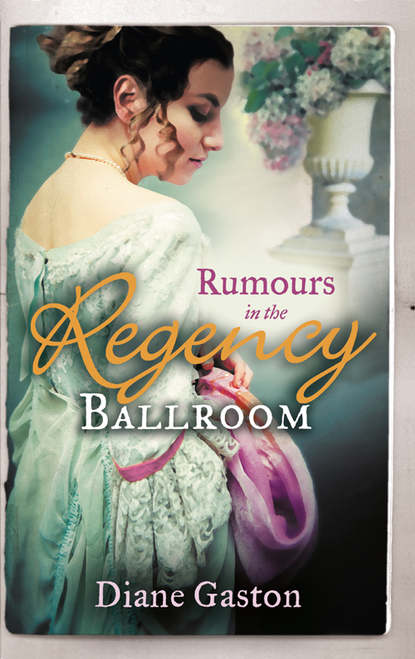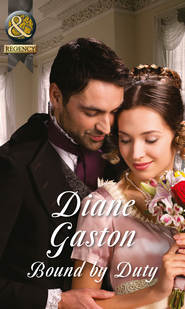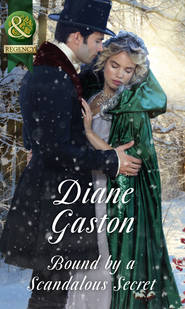По всем вопросам обращайтесь на: info@litportal.ru
(©) 2003-2024.
✖
Rumours in the Regency Ballroom: Scandalising the Ton / Gallant Officer, Forbidden Lady
Настройки чтения
Размер шрифта
Высота строк
Поля
He supposed he ought to send an announcement to the papers telling of his return. In fact, Bilson could see that it was done—one of the benefits of having more servants. He had even less to do.
The New Observer happened to be the newspaper on top. Adrian rolled his eyes. Bilson could forgo the subscription to the scandal sheet that had so maligned Lydia.
Adrian took a deep breath and dug his fork into a slice of cold beef. It made no sense to think of Lydia. He’d done an excellent job of forgetting her in Paris. Several high stakes’ card games had taken his mind away.
Until he won, that is, and remembered he was replacing funds he had given to her. He had also met a few very pretty French mademoiselles, but he could not sustain an interest in them. He attributed this to his general malaise, not to comparing them to Lydia.
Adrian shook his head and skimmed The New Observer, its columns full of gruesome murders and titillating affairs.
His gaze caught on the words the notorious Lady W—. Damned paper. What were they saying of her now?
He read on.…All of London wishes to know…Could she perhaps be in an interesting condition?
Adrian sprang to his feet, toppling the mahogany chair onto the carpet. “What the deuce is this?”
Bilson stepped in. “Is anything amiss, my lord?”
Newspaper still in hand, Adrian strode towards him. “My hat and gloves, Bilson, and be quick. I’m going out.”
Bilson lost no time in retrieving the hat and gloves, and Adrian was on the street in less than a minute. He set a quick pace in the direction of Hill Street and Lydia’s house, an easy walk away.
When he reached the street he saw several men clustered around.
Newspaper reporters.
He had half a mind to send them about their business, but that would certainly not remove her name from the papers. It would merely add his. He blew out a frustrated breath. He could not call upon her while the reporters watched who was admitted to her house. He crossed the street.
He thought about calling upon Tanner, but what would he say? Lady Wexin is with child and, if the child is not Wexin’s, it might be mine?
Adrian wasn’t ready to burden his friend with that information, especially as Tanner had written to him that he and Lady Tannerton were expecting a baby.
Adrian walked past Lydia’s house. As he passed by, a gentleman approached it—Lord Levenhorne, holding a newspaper and wearing a determined look upon his face. He was almost immediately swarmed by reporters.
Adrian watched Levenhorne beating them off with his newspaper. Adrian decided to head to White’s. With luck, Levenhorne would stop by there, and, when he did, Adrian would be present to hear all about his call upon Lady Wexin.
A soft light diffused through the curtains of the morning room and illuminated the page of the newspaper.
Lydia stared at the words. Could she perhaps be in an interesting condition?
A wave of nausea overcame her, not morning sickness this time, but a sickness of another kind. “How could they have discovered this?”
She’d secluded herself ever since the familiar symptoms emerged several months ago—aching breasts, inability to keep food in her stomach, heavy fatigue. Mary had noticed and knew from the start that Lydia was with child. Mary also had witnessed her last miscarriage and knew this child was not Wexin’s. The maid had not asked the baby’s paternity, though, and Lydia had explained nothing.
Five months had passed and Lydia’s figure showed the telltale changes. The other servants now also knew her condition. Lydia trusted her servants had kept this secret. They had been as loyal and caring as a family, but perhaps one of them had slipped and said something to someone and someone had said something to The New Observer. Or perhaps that vile reporter, Mr Reed, had decided to make this up and accidentally hit upon the truth.
She heard the murmur of voices outside. Tiptoeing to the window, she peeked through the gap in the curtains. They were out there again, the reporters. She’d been totally free of them ever since the poor Queen had died and had hoped never to see them cluster around her door again. They were back this morning, gathering around a gentleman who flailed at them with a newspaper in one hand and his walking stick in the other.
Lord Levenhorne.
Lydia pressed a hand protectively against the rounded mound of her abdomen. She had never carried a baby inside her this long.
She ought to consider it a tragedy that she’d conceived a child from that one brief moment of making love with Adrian, but she could not. It was a miracle. A miracle. One last chance to have a baby. She did not expect to ever have another chance. She would certainly never marry again, even if some man wanted her. She would never again put her life and her future in a man’s hands. She pressed her belly again, thankful this child was not Wexin’s.
Still, she mourned the loss of his babies, the three little lives she’d been unable to hold inside her long enough. Every morning now, she woke expecting to feel that cramping, that spilling of blood, but this baby still grew within her. She could feel it flutter, blessedly alive.
She wished now she had written to her sister to give her the excellent news. Instead her sister would read it as gossip in the newspapers.
After her money had been restored to her, Lydia had sent her sister a letter of thanks. She’d heard nothing in reply, and her sister’s maid told Mary there should be no more correspondence. Lydia still felt she ought to have written to her with the news of her pregnancy.
She wondered if her sister would contact her if she heard from their parents or brother. Lydia had heard nothing, which distressed her greatly. Surely if they were safe, one of their letters would have reached her by now, even if her letters had not reached them.
Lydia heard footsteps approach. She took in a deep breath. Lord Levenhorne could not upset her. Even the vile reporters could not upset her. Not when her baby moved inside her.
“Thank you, Adrian,” she whispered to herself. “For such a gift.”
Dixon entered the room, his expression distressed.
Lydia saved him from having to inform her who had called. “I know who it is, Dixon. I saw him through the window.”
Dixon cleared his throat. “I shall tell him you are not receiving callers if you wish it.”
Lydia gave him a reassuring look. “I will see him.” She touched her abdomen. “This is no secret, is it, Dixon? He will have to know at some time.”
Dixon’s features softened. “’Tis no secret, my lady, but we cannot allow his lordship to cause you distress.”
She was touched by his concern. “Do not fear. I shall manage nicely.”
She followed Dixon out to the hall where Levenhorne paced back and forth. The moment he saw her, he started towards her. “Lady Wexin—”
She extended her hand to him. “How kind of you to call upon me, Lord Levenhorne.”
He looked taken aback by the offer of her hand. He shook it, and belatedly gave her the bow politeness required of him.
Lydia turned to Dixon. “We’ll have tea, if you please.” Levenhorne blustered, “This is not a social call—”
She swivelled back to her guest. “I would still serve you refreshment, sir. Let us go to the drawing room where we might be more private.”
She led him up the stairway into the more formal drawing room with windows so high no reporter could see into them. She settled herself on a sofa and gestured to her guest. “Do sit, sir.”
His eyes flashed with impatience, but he lowered himself into the chair opposite her.
“How is Lady Levenhorne?” Lydia made her tone polite, as if this were indeed a social call. “I have not seen her in an age. Is she in town yet?”
“She is well,” he answered curtly. “She is in town.”
Most of the ton would be in town. The London Season had commenced, as gay as always, since the Regent had ended official mourning for his mother after only six weeks.
“And the children?” Lydia asked.











